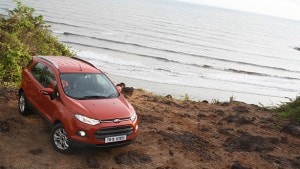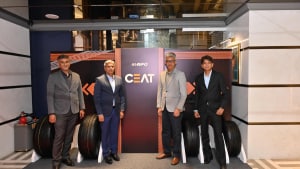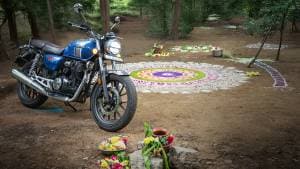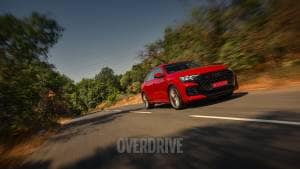Top 5 road trip tips
Roads all around the country are getting better. The cars are getting quicker, more comfortable, and efficient. And with the constant development of areas along the large highways, road travel has become a lot safer than before too. More importantly, if there are four or more people travelling together, it makes economic sense as well, particularly over the relatively expensive air travel. And lest we forget, road travel also gives you the flexibility to leave when you want without having to plan many days in advance; a boon in our extremely demanding, busy lives. But, to make the road trip safe, trouble-free and quick, there are few things one must always keep in mind. Here's our quick 5-step guide to a typical Indian road trip.
1. Car check
The car is your saviour, your most intimate partner and the reason for the road trip; it is the most important element in the road travel equation. Needless to say, it better be in top shape. Ensure all the fluids of your ride are topped up including the engine oil, the brake fluid and the windshield washer. Make sure the tyres are in good running condition and are inflated as per specifications.
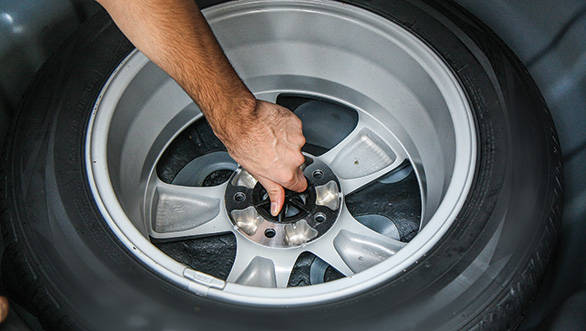
The important thing to look for are severe cuts on the tyre, particularly the sidewall, as sidewall punctures are not only more difficult to repair, the repair itself can cause an imbalance in the tyre resulting in an uncomfortable wobble. Also check for the age of the tyres. Now, if the car is sparingly used, the tread on the tyres might be good, but with age, the rubber begins to deteriorate. Ideally, the tyres should not be more than six years old. If so, replace with a new set. This holds true for the spare wheel as well. In addition, make sure the tool kit is in place along with the jack.
It would also be a good idea to get the car serviced at least a week in advance before your journey. This would mean the mechanical bits â" the steering, the brakes and the suspension are looked into by professionals as giving these a once over without help isn't up everyone's alley. Also a week of driving after service will tell you if the car is running as you would like it to. If not, a quick visit to the same service station and a little explaining should get your back to top shape.
2. The documentation
If your road trip is going to involve crossing state borders, it is best to carry the originals of your car papers; along with a set of photocopies, of course. A lot of times, especially when there is a tip-off, the police insist on originals and not having them on you could not only delay you, but could add to unnecessary hassle. This is especially true if the police has got a tip-off on a stolen vehicle.
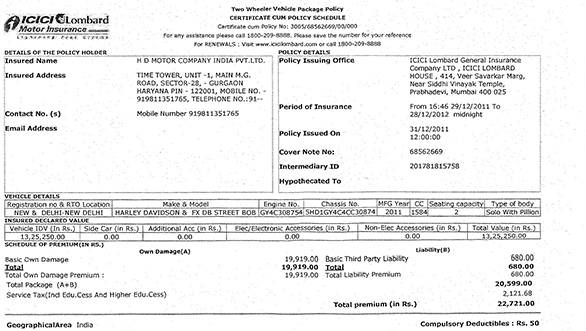
Not having the originals on you then might snowball a mere paper check into an ordeal which might include visiting the police station, convincing the senior officers, and of course losing precious time. It would be twice as harrowing for the family traveling with you. So, besides the car's registration, also make sure the insurance as well as the Pollution Under Check (PUC) are valid and will not expire in the course of your journey.
It is also a good idea to carry the spare keys of your car on you during the trip and an identity proof. Now, the driving licence should do the job on most occasions, it makes sense to carry your office ID too. Firstly, it doesn't occupy much space, but when things get ugly with the police, an office ID generally calms them down dramatically, convincing them you are not up to any mischief.
3. Cash on hand
The world might have moved to plastic money, but India isn't completely there. Yes, the larger cities are more accommodating when it comes to credit and debit cards, but more often than not, a road trip, even between large cities will take you through smaller towns where cash is all that is accepted. It's best then to have at least Rs 10,000 on you in cash if your journey is going to span 2,000km or more. It will help you buy food, water and tea at road-side dhabas, and help you pay tolls. The cash will also come in handy when you want to tank up in smaller towns.
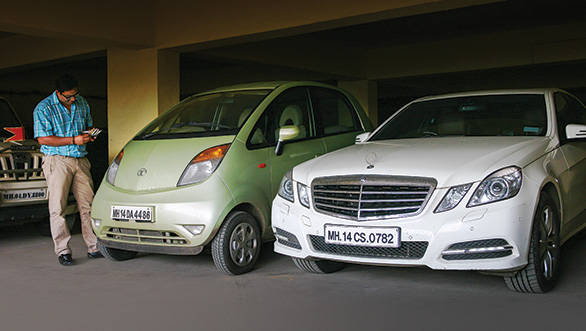
However, the trick here is to use the cash efficiently. It's therefore a good idea to find fuel pumps, hotels and eateries en route that accept cards. The key here is to look for signs. Only pull into fuel stations that are big, and if these are company-run and company-operated, the chances of finding card swipe machines are a lot higher. You do have to be careful when using your cards at pumps though. At many places they will ask for the card first to see if it works. Don't just give the card and stay in the car; go with the attendant and ask him to swipe for 10 bucks at the most. Even after tanking up, walk to the swipe machine with the attendant to see if he has punched the right amount... and only once.
Using the card more often on longer road trips will save you the effort of stopping every now and then to withdraw fresh money, besides leaving you with enough for emergency situations like a damaged or a blown tyre. A new tyre can be expensive to purchase, particularly in smaller towns. Â And though this goes without saying, but make sure your accounts, be it credit or debit, Â have sufficient funds before you set off.
4. Route planning
There is always more than one way to reach your destination, and it's best to research all these routes just in case the one you choose might be closed, badly jammed or flooded. A convenient place to research this is the web, of course. Search for articles or experiences that involve these routes. A word of caution though â" don't take these reviews for granted. It's possible that the condition of the road has changed dramatically since the reviewer last used it. But, having read a few will give you a general idea of what time of the year the roads are good and when they aren't. You would also need to know whether the route you choose is frequently used, and whether it has enough fuel stations and hospitals on the way. And if not, it's good to know how few and far between these really are. However, as a rule of thumb pick the national highway over a state highway. Not only will the road surface be better, the infrastructure in terms of fuel pumps, hospitals and police stations etc. will be much better developed.
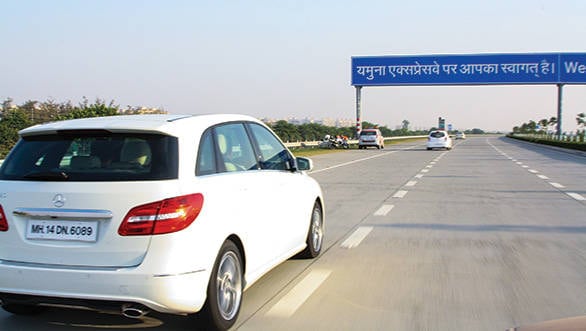
It's also crucial to plan your night halts. Pick a biggish city for the night and also choose the destination (or the distance you intend driving in a day) based on an average speed of 60-65kmph, not more. If you are on a driving holiday, it would be nice to pick a stopover that has a few sights and sounds. Also, always try and start early; one covers distances quickly thanks to less traffic in the early hours, and the drive itself, as a result, is less taxing.
5. Must have accessories
It's very important to have a few useful accessories and supplies in the car. Here's a list of what you must always have in a car when driving long distances.
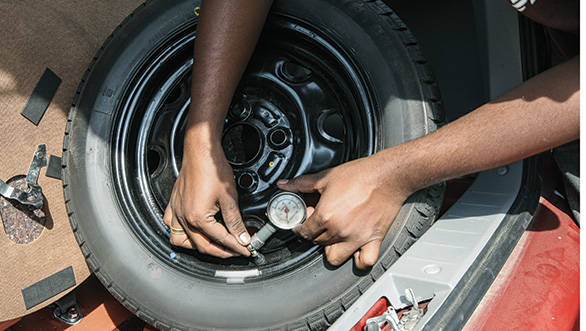
Tyre inflator: And a puncture repair kit is a must just in case you have a puncture in the middle of nowhere. Also learn how to use it before setting off.
Satnav: If one is sticking to a tried and tested route, a satnav isn't of much help. However, if you are going into a new city or have to make a detour, there isn't a better partner than a satnav.
Water: Goes without saying that if you do end in a big traffic jam, water is one thing that must be in ample supply. It's truer for summer months. Also note, no aerated drinks or fluids can quench the thirst and rehydrate you like water.
Small eatables: When traveling with kids in particular it's good to have things like chips and biscuits in good supply. Chocolates and sandwiches too are a worthy addition. But avoid food that needs to be spread out, or is oily or watery as it can spill and make a mess.
Old papers: Besides tissues, it is good to carry some old newspapers in the car. Not only do these help is cleaning up the windshield well when driving at night; their good absorption abilities mean, these can help mop up a mess quickly and efficiently.
